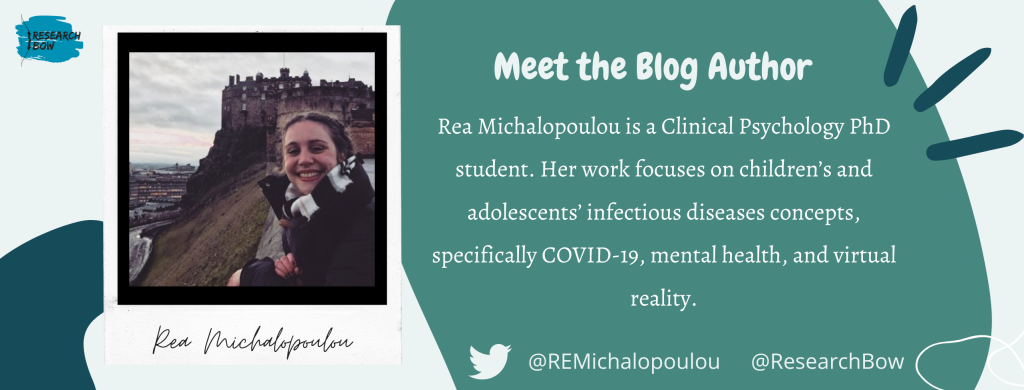“Embarking on a doctoral journey is an exciting yet challenging endeavor, filled with numerous milestones and new experiences. Among these experiences, attending academic conferences as a PhD student holds a unique place. However, for many PhD students, the exhilaration of presenting their work at these conferences is accompanied by persistent doubts: “Am I good enough?”, “Am I going to make it?”, “Am I an imposter?” In this article, we delve into the realm of imposter syndrome, specifically exploring its impact on the first conference experiences of a PhD student. Through personal reflections and shared anecdotes, we aim to shed light on the common struggles and challenges faced by emerging scholars, while offering practical strategies to navigate and overcome imposter syndrome”.

You are now a PhD student; you are one of ‘them.’ Part of your academic development will involve attending and presenting at conferences. You are an equal contributor to academic conversations. Exciting times! Or so I thought… However, my first attendance at a conference was not the amazing experience I had anticipated.
(Un)fortunately, it was a 3-day international conference focused on computer science – which is not my principal research area. As an interdisciplinary early career researcher with a background in education and psychology, attending a conference predominantly attended by computer scientists and engineers left me feeling inadequate. Several of the presentations and posters were thought-provoking. While I was in that event so many reflections were rushing through my mind. I had numerous questions, comments, and ideas, but something was stopping me from expressing them.
It was during this experience that I came face to face with what I now recognize as imposter syndrome. I wanted to ask questions about interesting methodologies but felt I shouldn’t, fearing that someone would question my competency and participation in the conference. I felt like a “fraud”. I clearly remember leaving the venue at the end of the first day and being angry at myself for only sitting alone, feeling anxious, and with lurking eyes. Why was I feeling like this? I knew that I had more than enough qualifications to actively engage in the conference. So, what was holding me back? I kept (metaphorically) banging my head against the wall as I made my way back to my home, but I could not get rid of these persistent thoughts and feelings… Perhaps I truly wasn’t good enough to be there.
The next morning came, and I made up my mind: I’m going to be more confident and proactive in my conversations. I kept reminding myself, ‘you can do it! just start talking to people! I arrived at the venue with a sense of confidence, but the morning session passed, and I still couldn’t manage to say a word. The feelings of sadness and frustration were only getting worse. It wasn’t until the end of the second day that I finally gathered the courage to approach people and engage in discussions about exciting ideas and projects. How did this shift happen?! Hmm… I still can’t quite put my finger on it. I believe it took several presentations (some good and some not-so-good) that were closer to my expertise to feel confident enough to find my voice. It was a relief! Throughout the following and final day, I continued to express my thoughts freely. I convinced myself that this sense of accomplishment and subsequent confidence would accompany me to all future conferences. Oh, how wrong I was!
In the next months, I had the opportunity to attend two more conferences, one of which I was a presenter. But the same feelings came back. I felt like an imposter, convinced that I was there due to luck rather than competence. I believed that everyone else was more qualified and well-informed, despite knowing for a fact that it wasn’t true. However, I was pleasantly surprised to realise that I was challenging my thoughts and feelings much quicker than before. At this point, I must emphasize that what really helped me was voicing these concerns to individuals with whom I felt comfortable within my academic community, that is, my fellow postgraduate researchers and mentors. Their insights and experiences as presenters genuinely provided me with additional ways to deal with my feelings.
I have no doubt that my next conference or any academic event will be accompanied by the same feelings (although, I hope I am wrong!). However, I am determined to actively overcome them. Moving forward, I will focus on the facts. I will challenge my thoughts and feelings. I will acknowledge that I have earned my place there. Ultimately, these thoughts and feelings come from within me. Despite they feel like they are external and objective views, they are just my inner voice, that sometimes doesn’t seem to be my biggest fan. If you find yourself in a similar situation, know that you are not alone, and you have earned your place in these spaces. Keep reminding yourself of that until you no longer need to. I know I will!
Where I can find out more about Imposter Syndrome?
Imposter Syndrome: What it is and How to Manage its Impact. Created by Caroline Broad and shared by the Institute for Academic Development (IAD) at the University of Edinburgh.

(Foto de Johnny Cohen en Unsplash )


